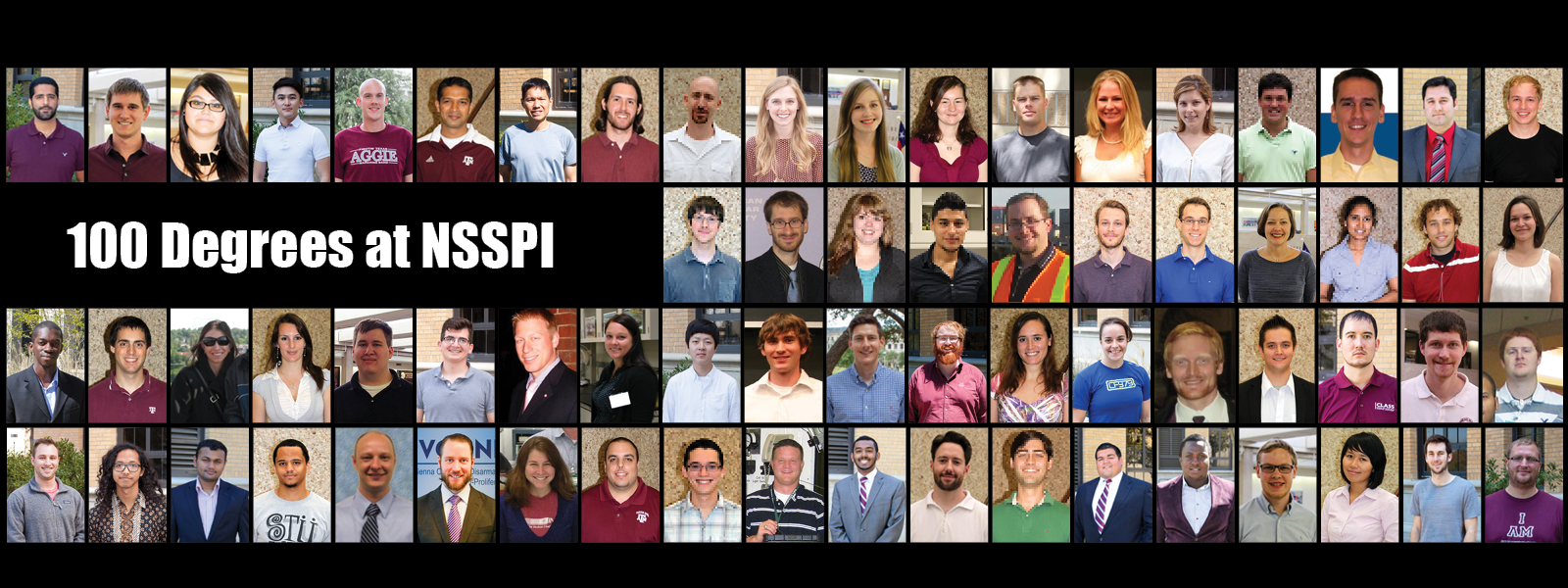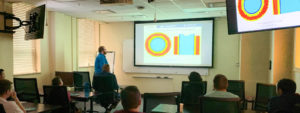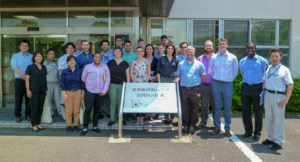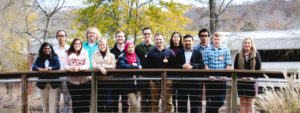While he was not able to walk across the stage, this past weekend Patrick O’Neal received the 100th graduate degree with a specialization in nuclear nonproliferation awarded to a nuclear engineering student from the Center for Nuclear Security Science and Policy Initiatives (NSSPI) since its creation in March of 2006. O’Neal earned his Master of Science degree in nuclear engineering working with NSSPI Director and Associate Professor of Nuclear Engineering Dr. Sunil Chirayath. His thesis project to diagnose nuclear proliferation potential in the thorium fuel cycle involved analyzing the ability of different facilities to covertly produce weapons usable uranium-233 and devising safeguards solutions to prevent against this eventuality.


O’Neal’s experience as a NSSPI student has included various NSSPI-facilitated professional development and research opportunities. He took part in both the international and domestic nuclear fuel cycle facilities experience study tours, including the 2018 International Nuclear Facilities Experience to Japan, where he was able to tour various nuclear fuel cycle facilities as part of a group of U.S. graduate students and young professionals from the national laboratories. He received hands-on safeguards training at both Oak Ridge and Los Alamos National Laboratories. Before embarking on his master’s thesis research, he conducted graduate-level research developing a methodology to perform combined analysis of nuclear facility security and safety risk for the Office of the Assistant Secretary of Defense for Nuclear Matters and mentored a team of undergraduate students developing a remote uranium holdup measurement monitor for the Y-12 National Security Complex. He was also given the opportunity to intern at Pacific Northwest National Laboratory during the summer of 2019. O’Neal plans to continue his studies by pursuing a Ph.D. in nuclear engineering at Texas A&M University and will be part of a NSSPI student research team under the advisement of Dr. Chirayath. His research will be focused on the proliferation signature analysis of foreign nuclear fuel cycles as part of the university consortium on Monitoring, Technology, and Verification research funded by the US Department of Energy’s National Nuclear Security Administration.

This combination of experiences and opportunities is typical of most NSSPI graduates. NSSPI students learn about nuclear security through traditional classes, field exercises, and laboratory experiments on campus, but they also get to experience nuclear security through hands-on short courses at national laboratories, international and domestic nuclear facilities experiences, internships, research projects in nuclear security topics, and interactions with other young nuclear security professionals around the world through international workshops and meetings. NSSPI has provided international travel and study experiences to over one hundred students at Texas A&M University, and almost all NSSPI students travel abroad during their time in the program through study tours, conferences, workshops, and outreach missions. Texas A&M also founded the first student chapter of the Institute of Nuclear Materials Management (INMM), which is advised by NSSPI faculty and has led to the creation of similar student INMM chapters in the U.S. and around the world.
NSSPI’s 100 degrees include 67 Master of Science degrees, eight Master of Engineering degrees, and 25 Ph.D. degrees. These 100 degrees were awarded to 92 individuals, eight of whom, like O’Neal, elected to stay with the program to complete a Ph.D. degree after their Master’s. Thirty percent of NSSPI graduates go on to work in the national laboratory complex, twenty-three percent enter government positions, and twenty-one percent go into the nuclear industry. Remaining NSSPI graduates have gone on to work in academia (4%), continue their studies (4%), or return to their military positions (8%).

The Texas A&M University System Board of Regents established NSSPI as a joint institute of Texas A&M and the Texas A&M Engineering Experiment Station in their meeting of March 23-24, 2006. NSSPI was the first university-based institute with a higher-education mission in the U.S. to focus specifically on the technical aspects of nuclear security and the interface between nuclear security science and national and international policy. NSSPI’s earliest activities focused on promoting graduate-level education and research in nuclear material safeguards and enhancing national security against nuclear terrorism. This was done largely in collaboration with the Bush School. More recently, NSSPI has also become very involved in nuclear security workforce development abroad in collaboration with the International Atomic Energy Agency and the U.S. Department of State. NSSPI outreach to the larger nuclear security and safeguards community includes the Nuclear Security and Safeguards Education Portal, which provides online learning to benefit not only our own students but anyone interested in studying nuclear security and safeguards.
For a full list of NSSPI Graduates, visit our website.